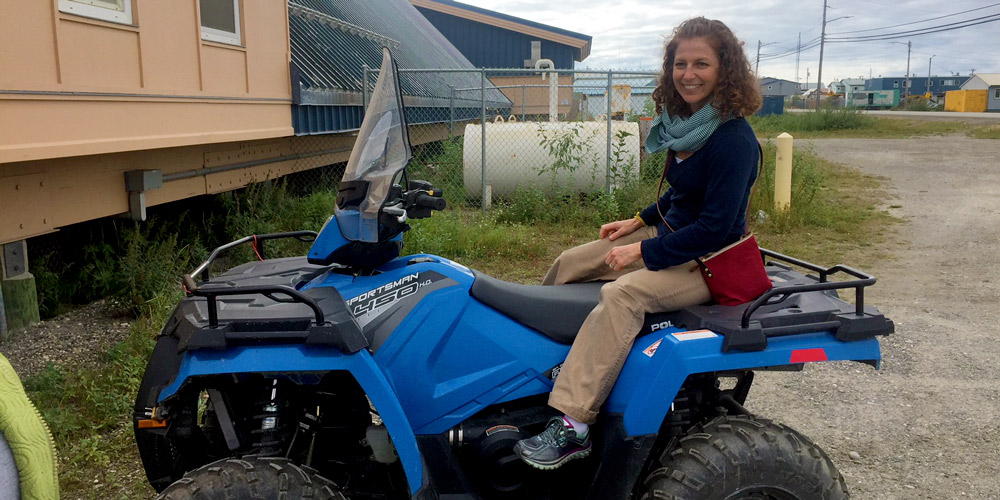
Mitchell-Box partners with Alaska Native people to tell health success stories
When she was studying public health at the University of Hawai‘i at Mānoa, Kristen Mitchell-Box, MPH (2008), DrPH (2011) had no idea that she’d soon be applying her skills in Alaska. Today, she is a program evaluator with the Alaska Native Tribal Health Consortium, Alaska Native Epidemiology Center, one of 12 tribal epidemiology centers in the U.S. funded in part by the Indian Health Service.
Her favorite part of her job is using digital storytelling to promote the success stories of programs and people working to improve Alaska Native health. Her success in storytelling stems from her learning experiences at UH. “My qualitative research class opened my eyes to the power of words and the importance of getting the story behind the numbers,” says Kristen.
Digital storytelling is the next step in qualitative methods. It is a technique to present stories of people who've made positive health changes. “Giving voice to people and programs about their successes can change public opinion and help support policy change,” adds Kristen. “For example, in Ketchikan, a digital story was produced about the bad effects of second-hand tobacco smoke. This story was shown to Alaska policy makers and helped them decide to pass a tobacco-free campus policy.”
As an evaluator, Kristen helps prove that health programs are indeed making communities healthier. “I love flying to rural Alaska to hear people’s stories about ways they stay healthy. I love hearing how health care programs and providers are making a difference in the lives of our community members,” adds Kristen.
Kristen credits the UH MPH program with introducing her to the many career opportunities that are available to public health professionals.
“Public Health touches everybody in some capacity, from the air we breathe and the water we drink to the environments in which we play, live, and work. As a public health professional, I have a choice of working in maternal and child health, mental health, community health, global health, environmental health, occupational health, or research.”
“Learning about community-based participatory research in my public health doctoral program was invaluable,” adds Kristen. “This course puts students in the mind-frame to think from a community’s perspective. What issues are important to community members? How can I help them reach their health goals? How can I help them expand their skills and resources for health?”
Kristen has fond memories of her studies at UH Public Health. “My doctoral cohort was very close, and my professors supported us throughout our studies. I would not be able to do what I’m doing today without my excellent public health education at the UH Mānoa,” she says.
